What is AMBISOME – 50MG?
AMBISOME is a prescription antifungal medication that contains the active ingredient Amphotericin B liposomal formulation. It is designed in a liposomal form to improve delivery and reduce toxicity compared to conventional Amphotericin B. AMBISOME is used primarily to treat serious fungal infections.
What is the use of AMBISOME – 50MG?
AMBISOME is used to treat severe and potentially life-threatening fungal infections such as:
-
Invasive fungal infections (e.g., aspergillosis, candidiasis, cryptococcosis)
-
Systemic fungal infections in immunocompromised patients (e.g., those undergoing chemotherapy, transplant recipients, or with HIV/AIDS)
-
Leishmaniasis (a parasitic disease) in some cases
It is administered intravenously under medical supervision, usually in a hospital setting.
Benefits of AMBISOME – 50MG
-
Effective against serious fungal infections: AMBISOME is highly potent against a wide range of fungal pathogens.
-
Reduced toxicity: The liposomal formulation helps to target the drug specifically to infected tissues, minimizing damage to healthy organs, particularly the kidneys.
-
Improved tolerance: Patients often experience fewer infusion-related side effects compared to traditional Amphotericin B.
-
Essential for immunocompromised patients: It is a critical treatment option for patients with weakened immune systems who are more susceptible to dangerous fungal infections.
Side Effects of AMBISOME – 50MG
While AMBISOME is generally better tolerated than conventional Amphotericin B, it can still cause side effects, including:
-
Fever, chills, or rigors during infusion
-
Nausea and vomiting
-
Headache
-
Low potassium or magnesium levels
-
Kidney function changes (monitoring required)
-
Allergic reactions such as rash or breathing difficulties (rare)
-
Anemia or other blood-related changes
Patients receiving AMBISOME are carefully monitored by healthcare providers to manage any adverse effects promptly.
Important Information
-
AMBISOME is given only by intravenous infusion by trained medical professionals.
-
Regular monitoring of kidney function and electrolytes is essential during treatment.
-
Inform your doctor if you have kidney disease or any allergies before starting AMBISOME.
-
Not for use in mild fungal infections or outside hospital settings without specialist supervision.
-
What is AMBISOME – 50MG used for?
AMBISOME is used to treat serious and life-threatening fungal infections such as invasive candidiasis, aspergillosis, cryptococcosis, and leishmaniasis. -
How is AMBISOME – 50MG administered?
AMBISOME is given by intravenous (IV) infusion, typically in a hospital or clinical setting under the supervision of a healthcare provider. -
How does AMBISOME differ from conventional Amphotericin B?
AMBISOME is a liposomal formulation of Amphotericin B, which allows better targeting of infected tissues and significantly reduces toxicity, especially to the kidneys. -
Is AMBISOME – 50MG safe for patients with kidney problems?
While AMBISOME is less nephrotoxic than conventional Amphotericin B, kidney function should still be closely monitored during treatment, especially in patients with pre-existing kidney issues. -
What are the common side effects of AMBISOME – 50MG?
Common side effects include fever, chills, nausea, vomiting, headache, and low levels of potassium or magnesium. Rarely, allergic reactions or kidney issues may occur. -
Can AMBISOME – 50MG be used during pregnancy?
AMBISOME may be used in pregnancy only if clearly needed and if the potential benefits outweigh the risks. Always consult your doctor. -
How long is the typical treatment duration with AMBISOME?
Treatment duration depends on the type and severity of infection but can range from a few days to several weeks. -
Can AMBISOME be used in children or the elderly?
Yes, AMBISOME can be used in both pediatric and geriatric patients, but dosing and monitoring must be adjusted accordingly. -
Does AMBISOME interact with other medications?
AMBISOME may interact with other nephrotoxic drugs or medications affecting electrolyte levels. Inform your doctor of all medications you’re taking. -
Is there any dietary restriction while taking AMBISOME?
There are no specific dietary restrictions, but maintaining hydration and monitoring electrolytes is important. -
Can AMBISOME be used for viral or bacterial infections?
No, AMBISOME is an antifungal and is not effective against viruses or bacteria. -
What should I do if I experience a reaction during infusion?
Notify the healthcare provider immediately. They may slow the infusion, administer medications to manage symptoms, or stop treatment if necessary. -
What monitoring is required during AMBISOME therapy?
Regular blood tests are done to monitor kidney function, liver enzymes, and electrolyte levels (especially potassium and magnesium). -
Is AMBISOME covered by insurance?
Coverage varies by insurance provider and plan. It is often covered due to its use in serious infections, but prior authorization may be required. -
Can AMBISOME be stored at home?
No, AMBISOME should be stored and prepared in a clinical setting. It requires specific storage conditions and must be handled by trained professionals.

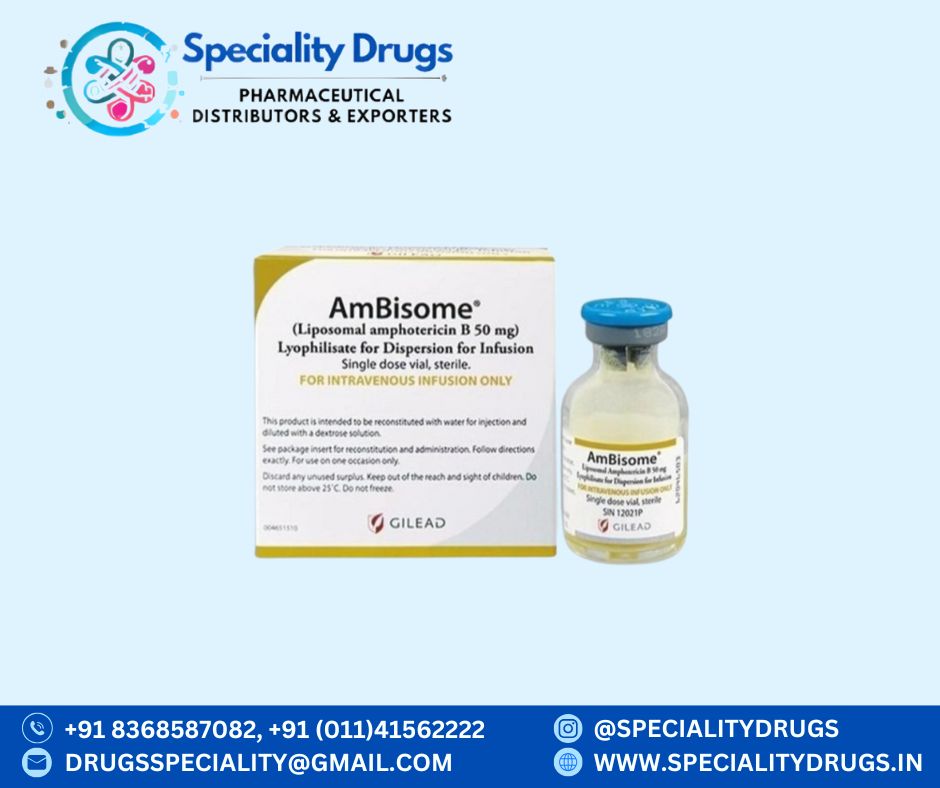
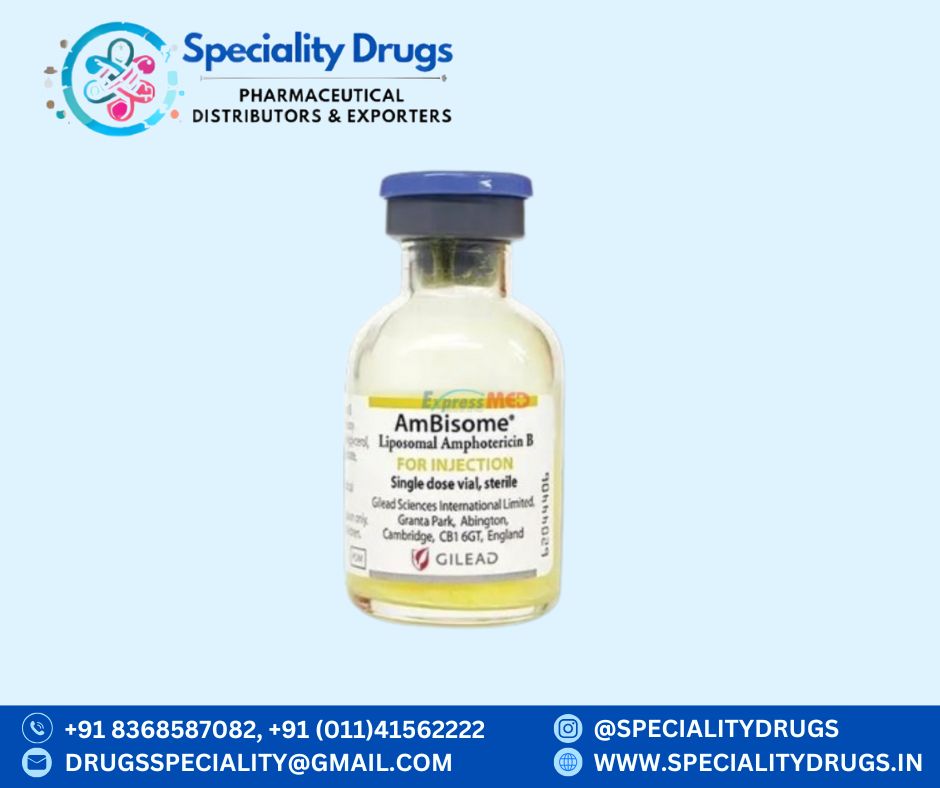
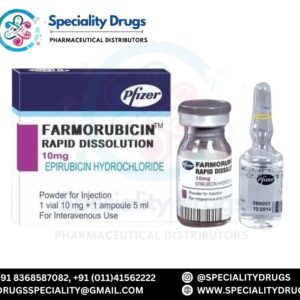
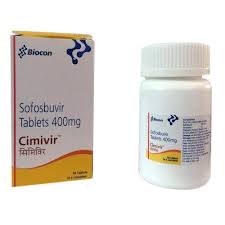
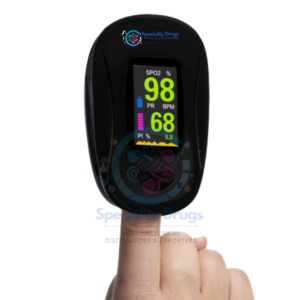
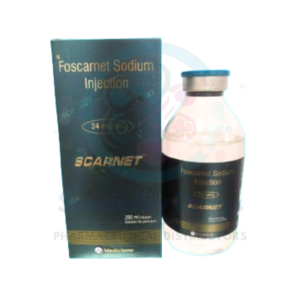
Reviews
There are no reviews yet.